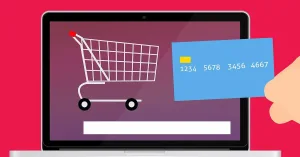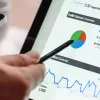With the plethora of options available today in online software, it can seem as if no one really needs computer-based personal finance software any longer. After all, most banks and plenty of websites offer programs that track spending and provide up to the minute information on your checking and savings account status. Why would someone need personal finance software on their computer?
The truth is that many of the free online programs that are offered do not provide enough information to truly manage your finances. While they can do a good job at helping you to keep track of how much money you have at any given moment, they rarely have any robust tools that will help you with your budgeting, investing and saving for the long term.
Spending Wisely
There’s a lot more to budgeting and building wealth than simply making sure you don’t overdraw your checking account -- the keys are controlling your spending and investing wisely. Personal finance software for your desktop has a number of sophisticated tools to help with both of these goals.
Everyone has to know how much they’re spending in order to be in control of their money. Many bank programs can show how much a customer has spent from an account over a set period of time, but few of them can itemize that spending over time. Practically none of them can show you your different categories of spending, such as utility bills or groceries. Personal finance software is able to take your bank statements and automatically sort your expenditures. That means you’ll know how much you spent on electricity over the past year, and track how your bill has changed. The same is true for expenses such as groceries and rent. With this information, you’ll be able to accurately predict how much you’re going to spend on these expenses in future months, allowing you to develop an intelligent and realistic budget.
Investing in your Future
Once you have your spending under control, it’s time to focus on your saving and investing. Unfortunately, this is another place where free online software and apps tend to fall short. While many of these programs can tell you how much you have saved and give you a rough estimation of how much you should save to meet your goals, none of them are very specific. That means that the estimates they give you do not include the interest that your accounts earn, or they use an approximation of that interest. While that might work for a quick guideline, a serious investor needs to watch his or her accounts very closely.
Personal finance software is able to track multiple investment accounts and update their data frequently. Instead of using estimations of earnings for each account, these programs base their calculations off of the actual historic performance of each account. Furthermore, you’re able to manually adjust the predictions that these software programs create in order to run simulations or test investment strategies.
Your finances, under your control
Personal finance software on your computer has another important difference with online programs. Your data remains in your hands, under your control. Online programs store data in the cloud where, increasingly, it is no longer as safe as once thought. Although the transition to online financial software is becoming popular, it might be wise to think twice about trusting your data storage to the cloud.




















Add comment